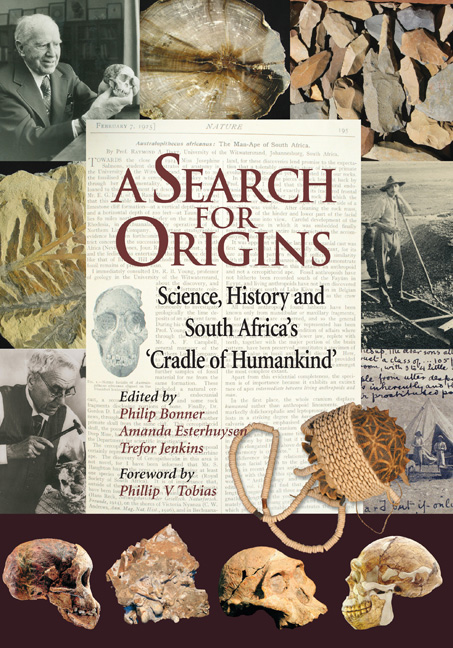Book contents
- Frontmatter
- Contents
- Map
- Foreword
- PART 1 Introduction: Africa is Seldom What It Seems
- PART 2 Introduction: Fossils and Genes: A New Anthropology of Evolution
- PART 3 Introduction: The Emerging Stone Age
- PART 4 Introduction: The Myth of the Vacant Land
- PART 5 Introduction: The Racial Paradox: Sterkfontein, Smuts and Segregation
- Epilogue: Voice of Politics, Voice of Science: Politics and Science After 1945
- Notes, references and recommended reading
- Notes on contributors
- Acknowledgements
- Index
Foreword
Published online by Cambridge University Press: 31 May 2019
- Frontmatter
- Contents
- Map
- Foreword
- PART 1 Introduction: Africa is Seldom What It Seems
- PART 2 Introduction: Fossils and Genes: A New Anthropology of Evolution
- PART 3 Introduction: The Emerging Stone Age
- PART 4 Introduction: The Myth of the Vacant Land
- PART 5 Introduction: The Racial Paradox: Sterkfontein, Smuts and Segregation
- Epilogue: Voice of Politics, Voice of Science: Politics and Science After 1945
- Notes, references and recommended reading
- Notes on contributors
- Acknowledgements
- Index
Summary
The need for this book has arisen from the listing as a World Heritage Site of the Fossil Hominid Sites of Sterkfontein, Swartkrans, Kromdraai and the Environs – popularly though not entirely accurately called the ‘Cradle of Humankind’! The World Heritage Centre falls under UNESCO, that is, the United Nations Educational, Scientific and Cultural Organisation. So, to understand the roots of this book, it is necessary to explore South Africa's relations with UNESCO and the events leading up to the listing of this country's first World Heritage Site in 1999.
Although South Africa was a founder member of UNESCO in 1946, it saw fit to withdraw from the Organisation in 1956, when the apartheid policies of the Union government were rising to a crescendo of racial intolerance and discrimination. With the perspective of hindsight, there is no doubt that it was UNESCO's vigorous programme against racism that was the cardinal factor in South Africa's decision to withdraw from the Organisation. A resolution adopted at the Fourth General Conference of UNESCO in 1949 called on the director-general, Dr Jaime Torres-Bodet, an esteemed Mexican poet, to (1) collect scientific materials concerning problems of race; (2) give wide diffusion to the scientific information collected; and (3) prepare an educational campaign based on this information. UNESCO in its early years embarked on the preparation of two sets of important publications, The Race Question in Modern Science and The Race Question in Modern Thought. Collectively these books constituted a scholarly and powerful indictment of racism (or racialism, as it was then still called). They were published less than a decade after the horrors that had been perpetrated during the Second World War in the name of race.
Torres-Bodet convened a Committee of Experts on Race Problems. These individuals were drawn from the fields of physical anthropology, sociology, social psychology and ethnology. Their deliberations led to the 1950 UNESCO Statement on Race (Paris, July 1950). This First Statement on Race opened with the ringing affirmation: ‘Scientists have reached general agreement in recognising that mankind is one: that all men belong to the same species,Homo sapiens.’
- Type
- Chapter
- Information
- A Search for OriginsScience, History and South Africa's ‘Cradle of Humankind’, pp. xi - xviiiPublisher: Wits University PressPrint publication year: 2007



